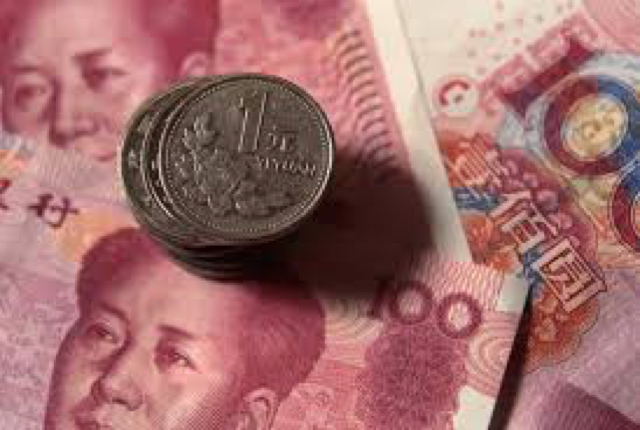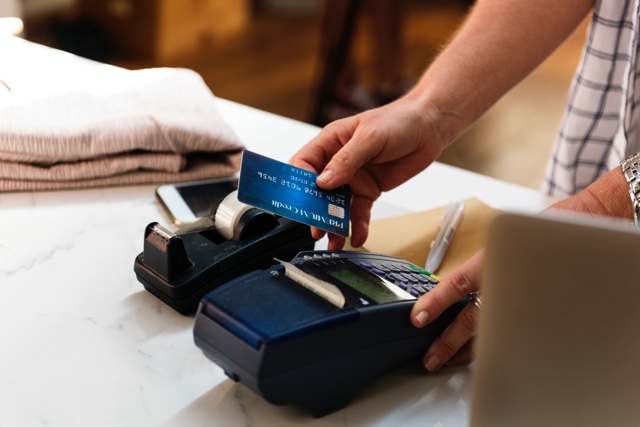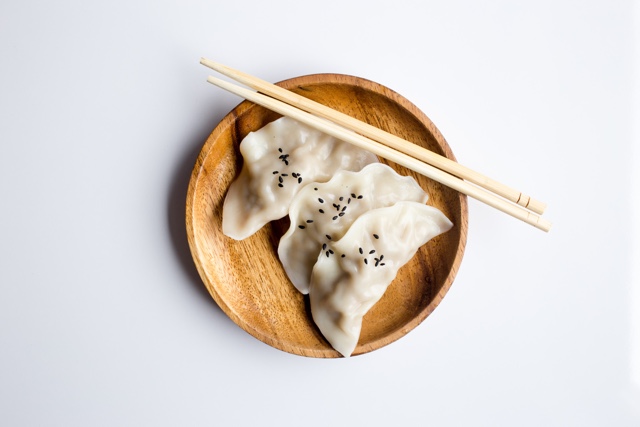The Best Ways to Take Travel Money to China
![]()
No matter if you're a relaxer, or an adventurer; as Kiwis, we love travelling to China.
![]()
Whether you want a cheap getaway, or you want to escape to luxury - China has you covered.
![]()
In our extensive guides we can help you work out how much everything is going to cost.
Currency in China
Planning a thrilling adventure in China?
Currency needs to be on your to do list. Here is some general information about the Chinese Yuan and some tips and tricks to get the best deal on your conversion from NZD to CNY.
How to buy Chinese Yuan before your trip

Online
This is usually the cheapest way to buy currency, but you need some time. You can choose where to pick the order up from, and in some instances can get home delivery.
Money Tips
- Use a promo code to get a much better rate. Click here to learn how it works
- Don't pay by card. There is card processing fee you can avoid by using Bpay
- There is a maximum amount of $5,000 per transaction

Money Changers
This is the best way to get currency quickly. You will find them in major shopping centres and towns.
Money Tips
- Use a discount coupon to get $10 off from Travelex stores
- The exchange rates are better in your CBD. So it can be worth going there if you're exchanging more than $2,000
- Always ask for a better rate. We've found you can often get a better deal just by asking, particularly if you're buying more than $100

Bank
Most banks do exchange currency. The issue is that they often have high fees, and don't offer very good rates. It's always better to compare rates elsewhere before deciding, but as a standard rule it's best to avoid your bank. Especially for a popular currency like Chinese Yuan Renminbi.

Airport
Yes, you can buy currency at the airport. But that doesn't mean you should. While it's convenient, it's also very expensive.
Money Tips
- Ordering it online and picking it up at the airport is much cheaper than buying it in person
- If you've run out of time before your trip, it's definitely better to buy currency when you get overseas, or use your Aussie debit card instead
How to buy Chinese Yuan in China
General Tips
If you decide to buy your currency when you get to China, the first thing you'll need to do is make sure you have New Zealand dollars in cash. This way you can exchange it when you get there.
Similar to New Zealand, it's best to avoid buying currency at the airport and the bank, and better to do it in one of the major city centres.
You can use this link to find Travelex stores in China.
Currency Exchange in China
Currency exchange in mainland China is highly regulated by the government. There are not many money exchange shops. This might be due to strict government laws and the stiff competition they face from Chinese banks.
Beijing
United Money
5F Geely Bldg., 1000 Yabao Road, Chaoyang District, Beijing
9F Building 6, 106 Fangyuan South Street, Chaoyang District, Beijing
District 301, 106A Guangqu Road, Chaoyang District, Beijing
Building 8, 129 Shifuying Road, Chaoyang District, Beijing, China
Geoswift
1F CYTS Building, No. 5 Dongzhimen South Street, Beijing
C6-001, Xiushui Street Market, No. 8 North Xiushui Street, Chaoyang District, Beijing
Room 198, Floor 1, No. 46 Tiantan Road, Dongcheng District, Beijing
Transforex
Ocean International Guanghua AB Block 28, Jin Tong West Road, Chaoyang District, Beijing
Shanghai
Bank of China
Xuhui Branch: No.509 Caobao Road, Xuhui District
West Jianguo Road Branch: No.596, West Jianguo Road
Heshan Road Branch: No.516 Hengshan Road
Huaihai Road Branch: No.1207 Middle Huaihai Road
Xianxia Road Branch: No.703 Xianxia Road
Guangzhou
Bank of China
6 Zhongshan 6th Rd, ZhongShan Liu Lu, Yuexiu Qu, Guangzhou, Guangdong
Jinsui Rd, Tianhe Qu, Guangzhou, Guangdong
United Money
138 Xingsheng Rd, Tianhe Qu, Guangzhou, Guangdong
133 Huanshi W Rd, SanYuanLi, Liwan Qu, Guangzhou, Guangdong
What Chinese notes and coins look like
Notes
The notes are structured in the same way New Zealand ones are. The notes themselves are designed differently, but they are the same type. Chinese Yuan are made up of:
¥1, ¥5, ¥10, ¥20, ¥50, ¥100.
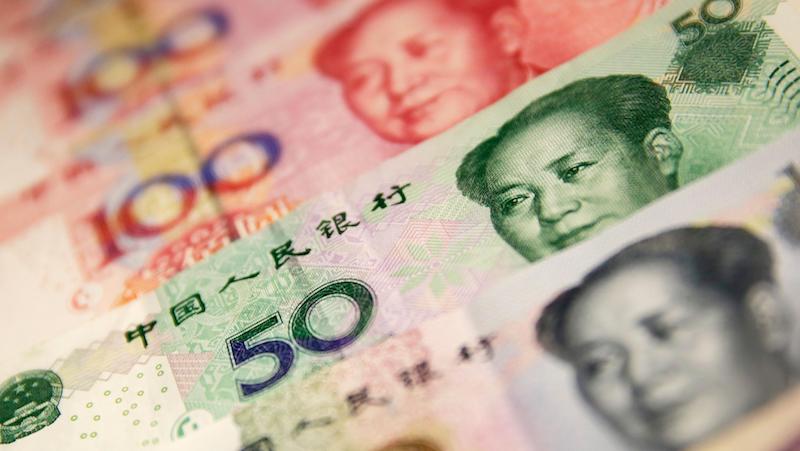
Coins
Coins in China are called Fen, Jiao/Mao and Yuan. The coins that are used in China are:
1 Fen (rarely used)
1 Jiao/Mao, 5 Jiao/Mao
1 Yuan
1 Yuan = 10 Jiao/Mao
These coins also have paper equivalents.
What is the difference between Chinese Yuan (CNY) and Renminbi (RMB)?
There is no difference. The Chinese currency is referred as Renminbi and Yuan and they are the same thing.
The official name for the currency is Renminbi, which literally translates to People's Currency and is abbreviated to RMB. The most widespread international usage is Yuan, which is abbreviated to CNY.
1000 Renminbi = 1000 Yuan
While the official currency is Renminbi, the basic unit is the Yuan (also known as Kuai), you will most commonly see it signified with the Chinese character 元 in shops or restaurants.
Is it cheaper to convert currency in New Zealand or China?
Exchange rates change frequently, and every provider offers different rates. This makes it hard to say what the cheapest way and place to exchange currency is.
When you're travelling to a place like China you can often get good exchange rates when you arrive because Kiwi travellers go there frequently. This means money exchangers in China are happy to trade between NZD and CNY.
Just steer clear of exchanging currency at the airport. On both ends, the rates will be much worse there than in the city centres.
To find the best way to buy CNY, you can read our guide here.
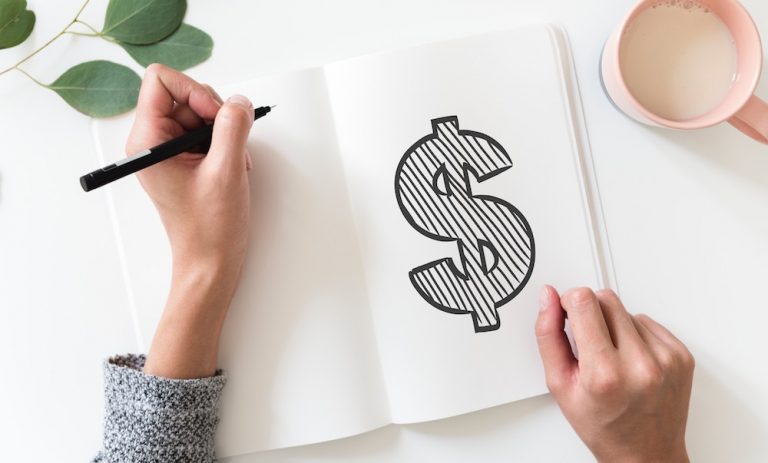
The Best Travel Cards For Kiwis to Use in China
It can be tricky working out which is the best travel card to use in China.
The fact is, the best one for you will really depend on what you need from the card you're using.
We've listed what we think are three of the best prepaid travel cards you can use while you're in China.
What are different types of travel cards?
They can be either prepaid, debit or credit cards designed specially for using overseas. You can use travel cards to make purchases online, in stores and to withdraw money at ATMs. There are 2 popular types:
- Prepaid Travel Cards
- Travel Credit Cards
Let's have a look at each one.
Prepaid Travel Cards
For prepaid cards, you're able to load the card with a set amount of money in the currencies you need. Ideally you do this before your trip, but often you can reload them as well.
Most prepaid travel cards allow for multiple currencies to be loaded onto the card. So it's important to know what currency you'll be using on your travels. Airlines also offer prepaid cards so the money you spend can earn you reward points.
With prepaid travel cards you need to be careful, as they can have numerous fees and charges which can make it more expensive than other options. But if you're organised and travelling to multiple cities a prepaid travel card is a good option.
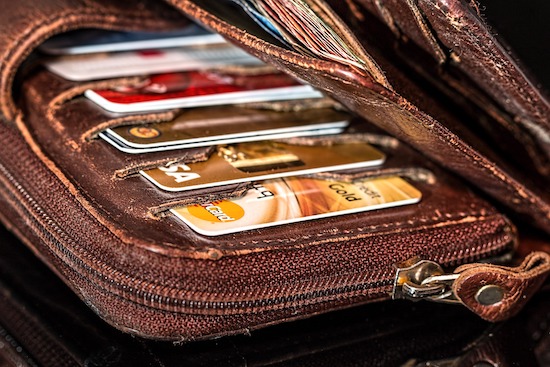
Best Prepaid Travel Card: The Travelex Money Card
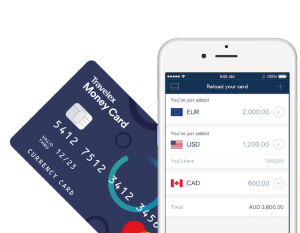
The Travelex Money Card is our best value prepaid travel card. With this card:
- There are no ATM fees so you can withdraw cash at no extra cost
- You can access Travelex's online rates
- You can lock in your initial loading cross currency rate
- Ideal for the organised traveller.
- Can load up to 10 currencies including AUD, USD, EUR, GBP, NZD, CAD, THB, SGB, HKD and JPY.
- Smartphone App & Free Wifi Cross
- $0 overseas ATM fees (Australia excluded)
- Free Replacement Card
- 24/7 Global Support
- Limited Currencies
- 5.95% currency conversion rate
- $100 minimum initial load
- 2.95% Australian ATM withdrawal fee
Learn more about the Travelex Money Card
Travel Credit Cards
Credit cards have obviously been around for a long time. But now there are specialised travel credit cards. Generally, these cards give you longer to pay back what you've spent but the interest rates after this time can be quite high.
The main advantage with credit cards are the reward points you get in return for your customer loyalty when you spend. But it only works if you pay off the balance in full each month.
Credit cards are great to use for car hire, restaurants and accommodation - larger expenses that are easier for you to pay back over time. Some services only take credit cards to hold purchases so they can definitely be handy while you're travelling.

Best Travel Credit Card: 28 Degrees Platinum Mastercard
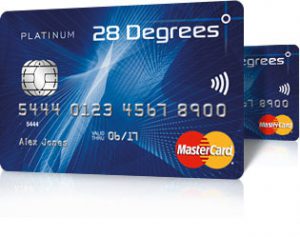
The 28 Degrees Platinum Mastercard is our best value travel credit card. With this card:
- There are no annual fees
- No overseas purchase fee or currency conversion fee
- You get 55 days interest free on purchases
- Access to free 24/7 concierge service
- Emergency card replacement worldwide
The 28 Degrees Platinum Mastercard has additional benefits including shoppers and repayments benefits cover. For more information read our review.
- Can have 9 additional cardholders
- No overseas purchase fee, or currency conversion fee
- No foreign transaction fee
- Free Replacement Card
- High interest rates after the initial 55 days
- Minimum credit limit is $6000
- No introductory offers or rewards
Learn more about the 28 Degrees Platinum Mastercard
How Much Things Cost in China
China is becoming an increasingly popular destination for Kiwis. And with the weather, food, activities and shopping - it's not surprising. Travelling somewhere new for the first time can make budgeting a bit difficult. But it becomes easier to plan your holiday once you know how much things cost in China.
To give you a better idea of how much everything is going to cost, we've listed some essential things you might need on your holiday like accomodation, transport, food and more.
All the prices we've quoted in this article are in New Zealand dollars, but you can visit our currency converter to find out what the exchange rate is between the NZD and CNY.
Before you head to China, learn about:
- Is it expensive to visit China?
- How much you need to bring to China?
- How much it costs to fly from New Zealand?
- The cost of food
- Buses and trains
- Tours in China
- Hiring a Car
- Accomodation
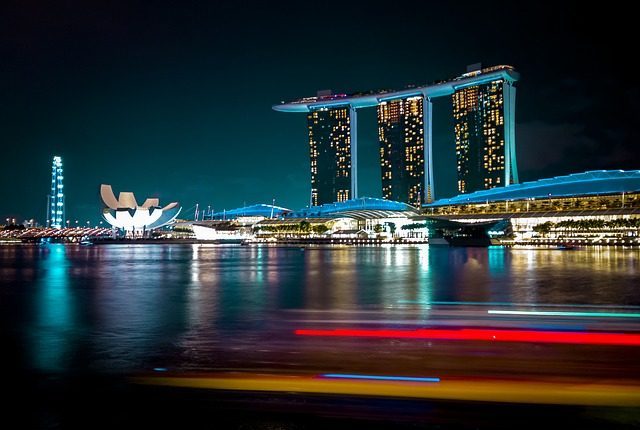
Is it Expensive to Visit China?
When it comes to travelling in China, there is a big difference between there and New Zealand. Let's have a look at the cost difference between some food and activities in China and New Zealand:
New Zealand vs China
In this table, we have a comparison of some things you might do in China. The prices are approximate, and can change between different cities in China.
| Expense | Cost in New Zealand | Cost in China |
| Cappuccino | $4NZD | $5NZD |
| 1 full month of public transport (MyKi) | $145NZD | $24NZD |
| Full priced Movie ticket | $20NZD | $9NZD |
| 1 full month Gym membership | $65NZD | $50NZD |
| A bottle of beer | $5.5NZD | $2.5NZD |
How much money do I need to bring?
The answer to this question really depends on the type of holiday you're planning. Will you be backpacking and staying in hostels? Will you be living it up at a fancy hotel? If you want to do it on a budget, you easily can or you can splurge and go on a luxury holiday.
China can be a slightly more expensive country to visit, compared with other Asian destinations. Having said this, there are ways you can cut costs if you need to.
Here we have listed an estimate of what you'd need, per person, per day depending on your holiday.
Budget holiday: $100NZD
Middle of the range holiday: $100 - $350NZD
Luxury holiday: At least $350NZD
How much does food cost in China?
Food is a pretty important part of a holiday, and a great way to get to know a country. Especially somewhere like China where there is delicious food to try on every corner. In China, you can really decide how much you want to spend on food everyday. You could get by on as little as $30NZD or if you're fine dining you could spend a lot more! Below we've listed some general prices for eating and drinking out, and the cost of some other bits and bobs.
Eating out:
- Breakfast: $5 - $25 NZD
- Lunch: $10 - $30 NZD
- Dinner: $10 - $40 NZD
Drinks:
- Coffee: $3.50 NZD
- Beer: $10 NZD+
- Glass of wine: $10 NZD+
Some other examples:
- Big Mac meal: $8 NZD
- Bottle of Wine: $30 NZD+
- Bottled water: $4.50 NZD
- Cocktails: $20 NZD+
- Food tour: $50 to $200 NZD
How much does it cost to fly from New Zealand to China?
Like flying anywhere in the world, flights between New Zealand and China can change depending the time of year. Having said this, there are often sales that can get you there quite cheaply.
The flight prices also depend on where in New Zealand you're flying from but from most capital cities you can easily get a direct flight.
Generally the average cost of a return flight to Beijing Capital International Airport from Auckland will cost you about $800 - $1800NZD.
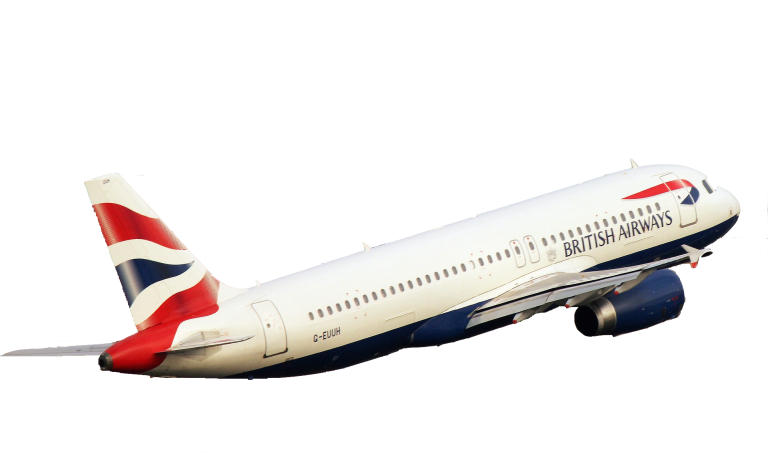
Getting Around
Similar to New Zealand, China is an expansive country which is often traversed internally by airplane. Flights between major cities are approximately 300NZD.
Another option for intercity travel is the high speed bullet train. Trains cost 125–350NZD between major cities like Beijing, Xi’an, and Shanghai.
Bicycles are an excellent method for getting around China’s cities and tourist sights. They can also be invaluable for exploring the countryside and surrounding towns. Bikes can be hired by the day or by the hour, it is also possible to hire a bicycle for more than one day. Rental rates vary depending on where you find yourself, but rates start at around ¥10 to ¥15 per day in cities such as Beijing. With 500 million bicycles in China, you wont be alone.
Boats are most common in coastal areas where you are likely to use a boat to reach offshore islands such as Putuoshan or Hainan, or the islands off Hong Kong. Another popular way to travel through China on a boat, is a cruise down the Yangtze River.
Taking a taxi is quick and convenient way to get to your destination. You can find taxis in almost every city, and the fares are relatively inexpensive for Aussie travellers. You can order a taxi from your hotel or signalling for one but please not taxis cannot stop anywhere on busy streets with traffic police, so drivers are likely to ignore your signal on these streets. Look for a taxi standing zone or try a side road when signalling a taxi. Another note is very few taxi drivers speak English. It's best to bring a business card for your hotel or destination or have your destination written down in Chinese to show the driver. In large metropolises like Beijing and Shanghai, even the taxi driver can get lost. It's best to have the phone number of your destination on hand if possible just in case.
Tours
Utilising tours is a great way to meet other travellers and learn about the area you're in. If you're looking to have a completely guided tour, you could consider looking into companies like Intrepid, World Journeys or Peregrine. But even on a smaller scale, you can often find guided tours to different parts of the country which can usually be organised through your hotel or hostel. These may set you back a small fee to cover the cost.
Viator is a great website to get information about tours you can do throughout China!
Accomodation
You can somewhat be flexible about how much you spend on accomodation when you get to China. If you're keeping it low key and don't want to spend much, there are hostels, or you could live it up! Below are some rough guides to how much you can expect to pay.
Accomodation on a budget, like hostels cost about $50 to $125NZD a night.
Mid-range accomodation like a double room in a 3 star hotel will probably cost between $125 and $350NZD a night.
A double luxury hotel room will cost from $350NZD up to as much as you're willing to spend per night.
Using the following sites will give you an even better idea of how much the accomodation you're after will cost you.
Tipping
Tipping is not compulsory in China. However, you may find that you want to tip and at some places you might find there is a service charge added to your invoice. Below we've listed some things you should keep in mind about tipping in China:
- Wages in the service industry can be quite low in China, and throughout South East Asia. If you have the means to, it is greatly appreciated.
- 5-10% of your bill is an acceptable amount to tip.
- You can also consider leaving a tip at the reception of your accomodation, so that all staff can share in your generosity, but this is also not customary.
